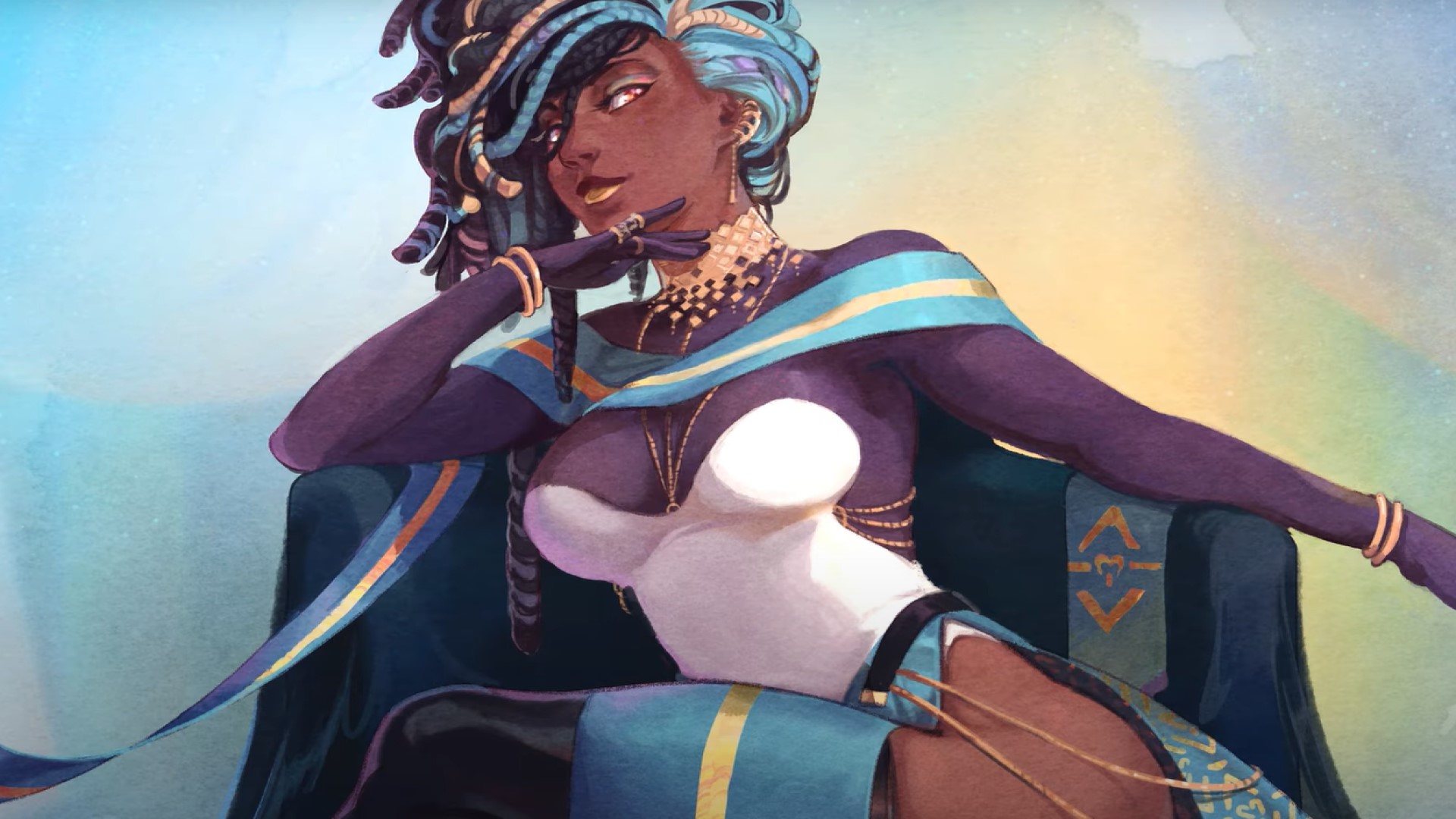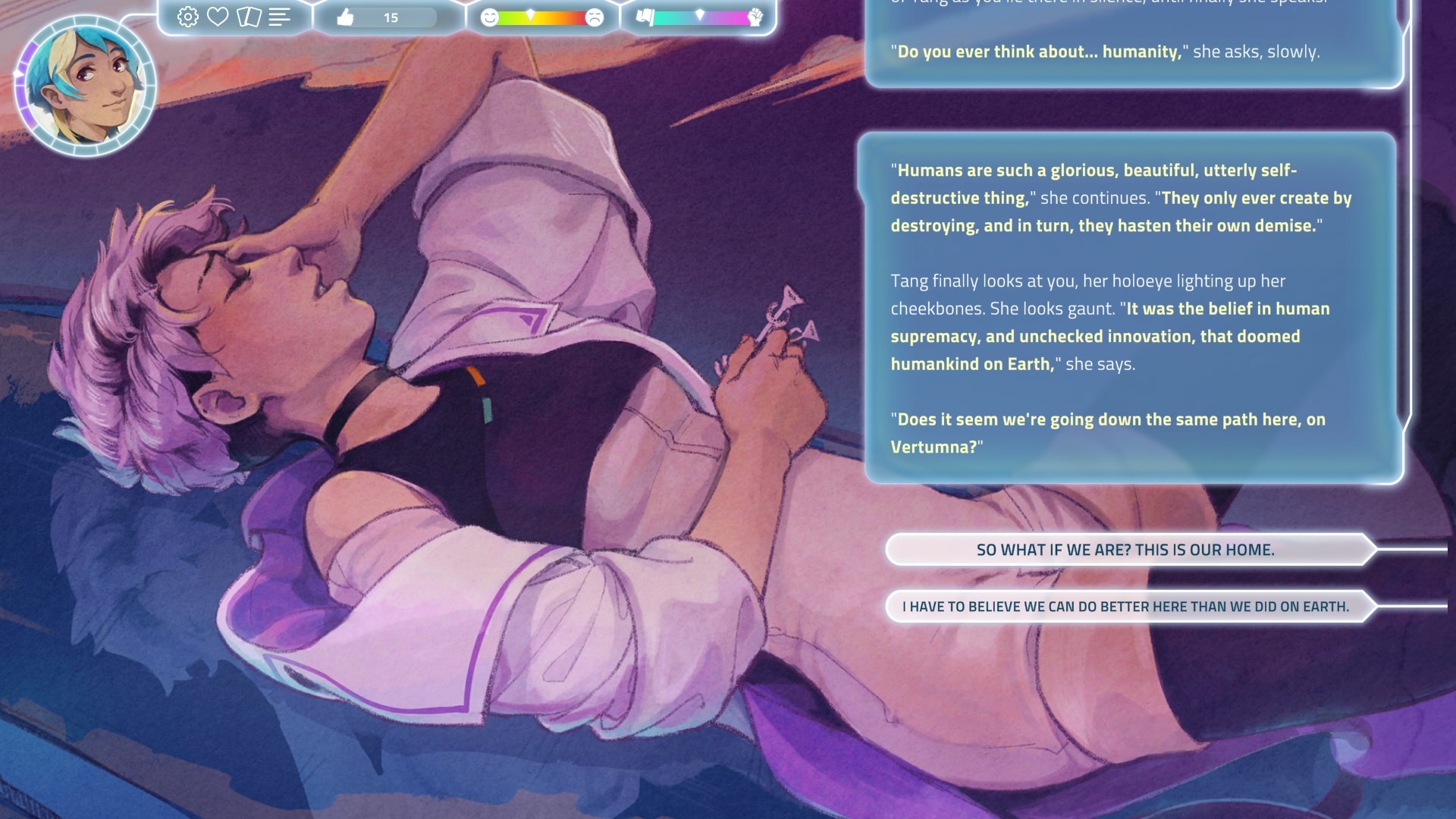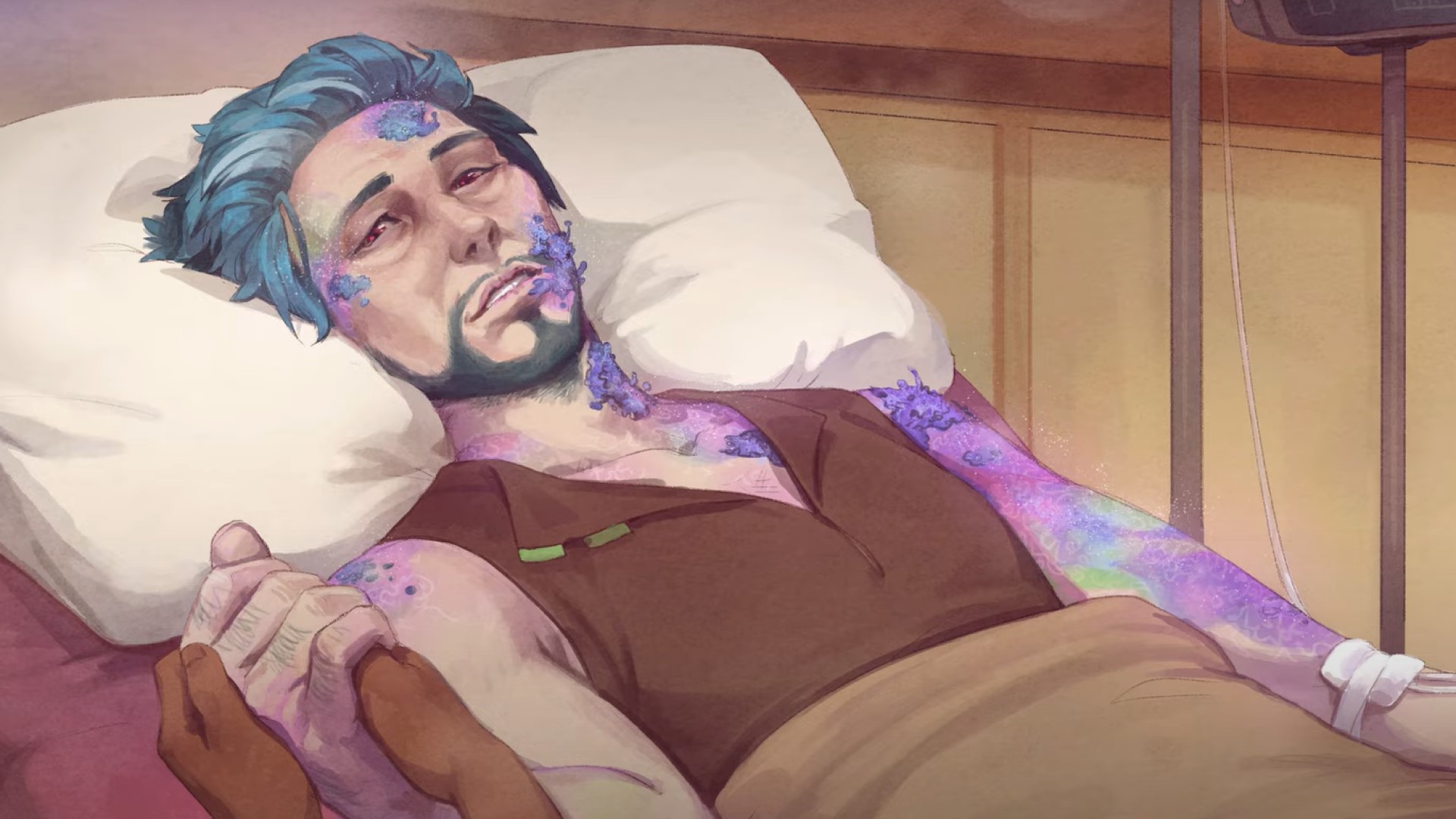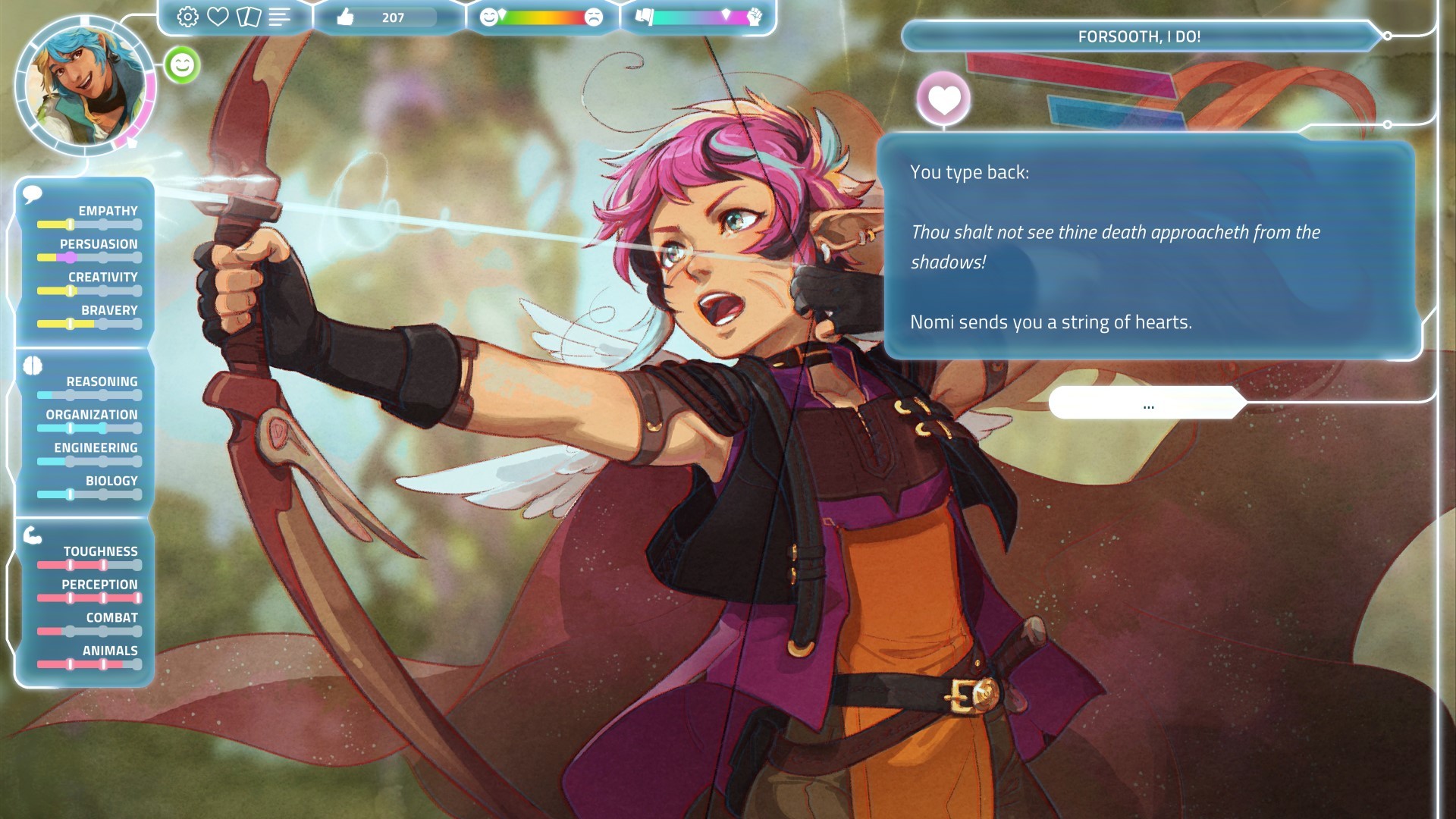This Persona-like RPG perfectly captures the beauty and fragility of adolescence
Teenage wasteland

As you come out of class one morning, your best friend Tammy greets you. After a hard day of study in the makeshift classroom that was once part of your colony ship, your 10-year-old brain is dearly in need of a break. Fortunately for you, Tammy’s found out that, today, the canteen is serving a delicacy from old earth. You’ve never heard of “cotton candy” before, but you’re keen to give it a go.
Tammy sprints off ahead. She wants to visit the creche first but says she’ll meet you there. You reach the canteen, eager to partake of the sugary goodness with your friend but Tammy never arrives. An electrical fault kills her in the creche.
Belying its colorful and warm aesthetic, I Was a Teenage Exocolonist doesn’t pull its punches. The tragedy comes out of nowhere, driving home that living in the salvaged shell of a crashed colony ship on an uncharted alien planet is as dangerous as you should expect.
During any given playthrough, Exocolonist left me wondering what I could have done differently, whether I could have saved the people I lost, and if maybe, just maybe, next time I could get everything right. The burden of responsibility that lingers at the heart of the game is an artistic triumph. Every choice truly matters. This is why I Was a Teenage Exocolonist is my game of the year.
Making the most of it

The premise of I Was a Teenage Exocolonist is simple: you play out 10 years in the life of a young person trying to build a life on the planet of Vertumna. You are part of humanity’s first stellar colony. Far from earth, you and the rest of the Vertumnans are on your own, forced to make the most of life amongst the seemingly hostile flora and fauna of this brave new world.
Every time you attempt to overcome a challenge in Exocolonist, you are confronted with the legacy of every decision you’ve made so far in the game.
The most significant choices you make are how you dedicate your limited time in those 10 years. Different pursuits develop different skills which, in turn, affect your likelihood of succeeding at certain tasks. This results in a sprawling, branching narrative tree, full of varied decision points and outcomes.
In Exocolonist, you overcome challenges thrown at you throughout the story through a sort of card-battling system, except – and here’s the kicker – your deck is comprised of cards corresponding to memories your character has made throughout their life. Every time you attempt to overcome a challenge in Exocolonist, you are confronted with the legacy of every decision you’ve made so far in the game.
Get daily insight, inspiration and deals in your inbox
Sign up for breaking news, reviews, opinion, top tech deals, and more.
Being human

Every aspect of Exocolonist is poised to remind you both of the immense potential and profound limitations of adolescence. You can make wildly different choices during your 10-year playthrough, but your time is limited, and you know it. You can fall in and out of love with any of the game’s ensemble cast of teenagers. You can become a master horticulturalist or an engineering savant. You can learn to pick up a rifle and defend your colony. You can even run for governor. However, you absolutely cannot do all of these things at once.
Before you know it, 10 years of in-game time will have passed, and, for every opportunity you’ve taken, you’ll be mindful of a handful you had to turn down in pursuit of your goals. This is what makes Exocolonist special. It is simultaneously absolutely brutal and profoundly generous to its players, demanding and uncompromising in its reconstruction of the demands of young adulthood.
In a way, Exocolonist mirrors life itself with an almost unnerving precision. Even the best choices you could possibly make have costs. Devote yourself to colony politics, and you will almost certainly have to neglect expeditions and exploration. Even something as simple as pursuing a friendship incurs an opportunity cost in the form of all the friendships you did not attempt to pursue. This is the harsh beauty at the core of Exocolonist. You cannot be all things to all people.
The circle of life

Excolonist pushes the envelope further by placing an emphasis on cycle and repetition. Early on, it becomes clear that your character is having visions of the future or, possibly, parallel realities. It is strongly implied, as the game progresses, that you undergo a form of reincarnation with every playthrough.
Exocolonist is unrepentantly and completely devoted to its task of accurately and heartbreakingly rendering adolescent joy and fragility for the benefit of the player.
As you live out more lifetimes as your exocolonist, they become increasingly aware of their place in a cycle of reincarnation. Suddenly, flashes of memory from past lives allow you to cut corners and to solve problems before they happen. Why bother to help research a cure for an imminent plague of the deadly fungus, when you can simply remember the cure from a previous life?
Lean too heavily on your prognostications, however, and other characters will begin to wonder if you are unwell or suffering from delusions. Fittingly, the more you lean on your powers, the more alienated you become. You begin to stand apart from your fellow colonists. The mortals that surround you cannot see what you see. I shan’t spoil the subtle metaplot that underpins the colonist’s unique gifts, but I will say that it is possibly the game’s greatest flourish. As seductive as perfection might be; to err is human.
This is hardly a new theme for a video game. Arguably, every rogue-like game deals with ideas of reincarnation in some way. However, Exocolonist embraces this idea with unapologetic gusto. It gives you the option of transcending your adolescent tribulations by using your supernatural insight. However, without spoiling too much, even this has its costs, both social and psychological.
Exocolonist is unrepentantly and completely devoted to its task of accurately and heartbreakingly rendering adolescent joy and fragility for the benefit of the player. It is a truly special experience that takes advantage of its interactive medium to deliver an intimate and emotionally resonant story that amuses and captivates again and again.

An editor and freelance journalist, Cat Bussell has been writing about video games for more than four years and, frankly, she’s developed a taste for it. As seen on TechRadar, Technopedia, The Gamer, Wargamer, and SUPERJUMP, Cat’s reviews, features, and guides are lovingly curated for your reading pleasure.
A Cambridge graduate, recovering bartender, and Cloud Strife enjoyer, Cat’s foremost mission is to bring you the best coverage she can, whether that’s through helpful guides, even-handed reviews, or thought-provoking features. She’s interviewed indie darlings, triple-A greats, and legendary voice actors, all to help you get closer to the action. When she’s not writing, Cat can be found sticking her neck into a fresh RPG or running yet another Dungeons & Dragons game.